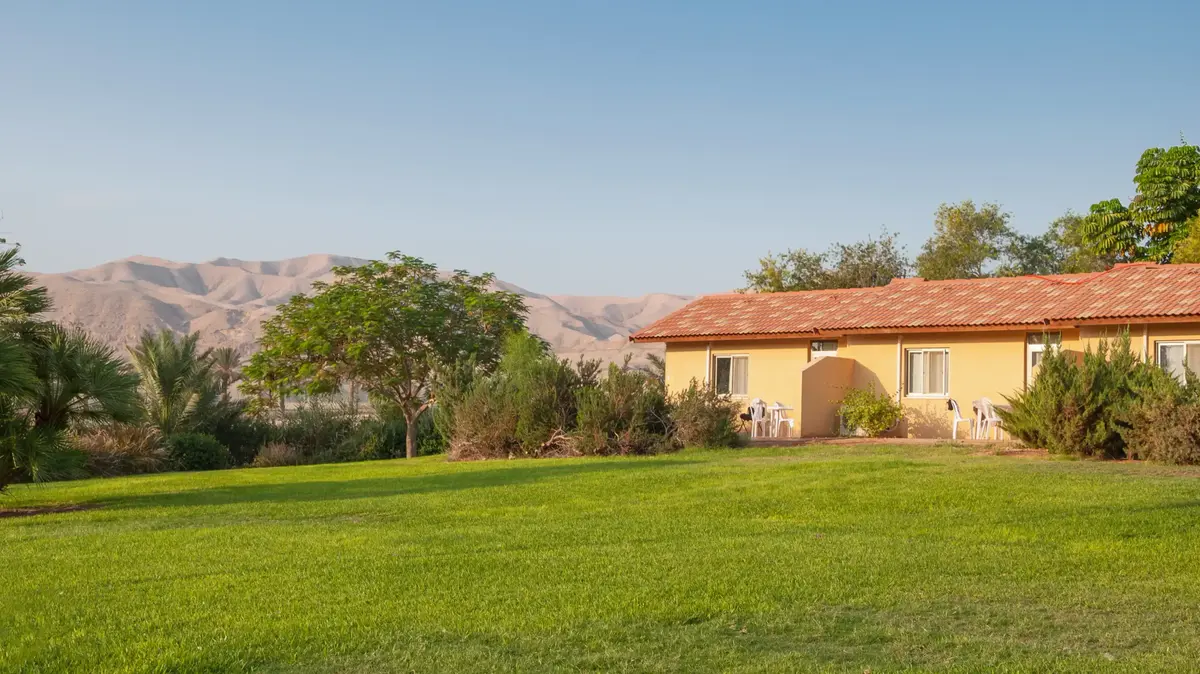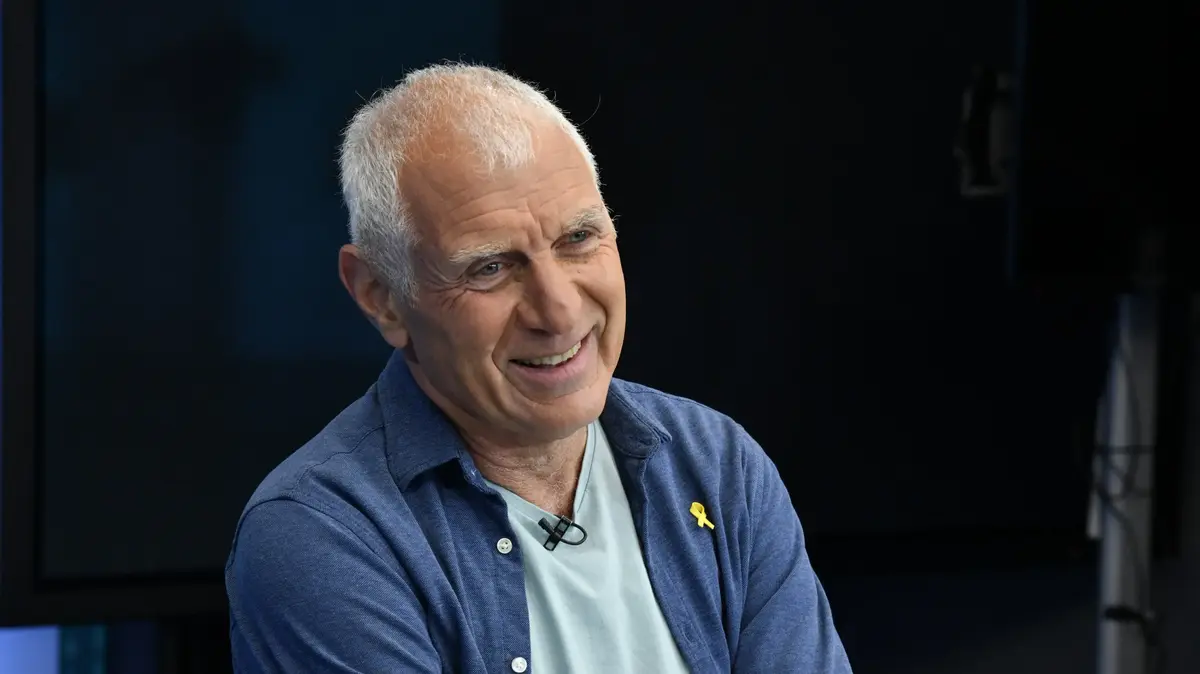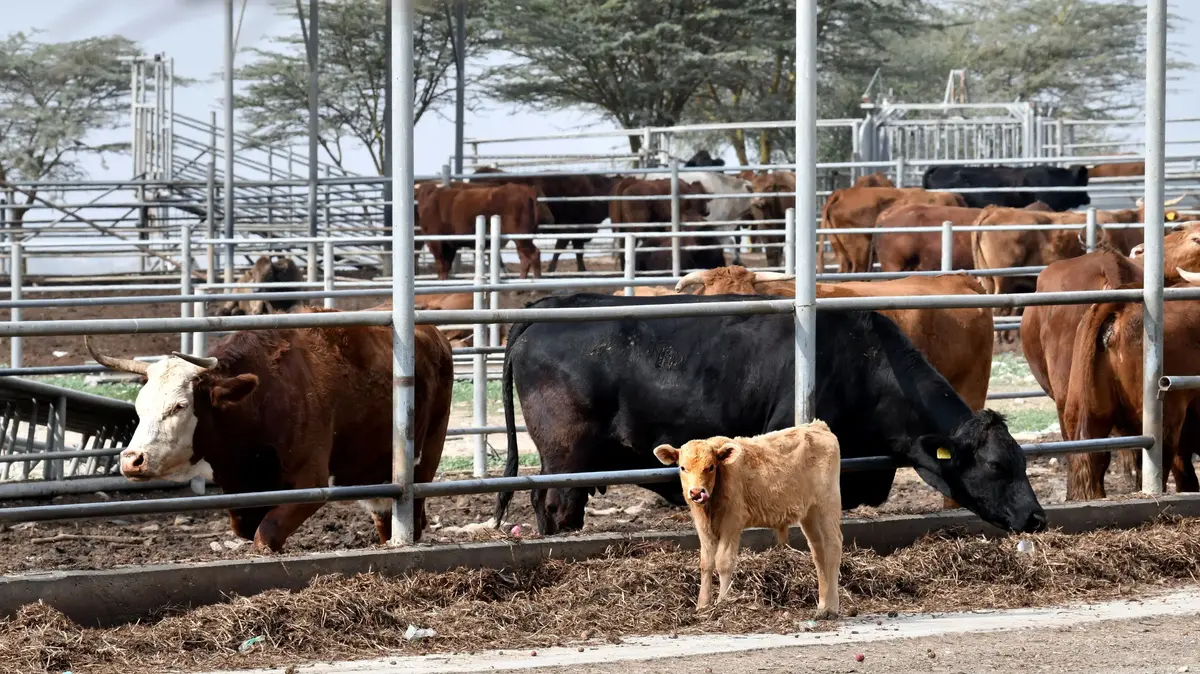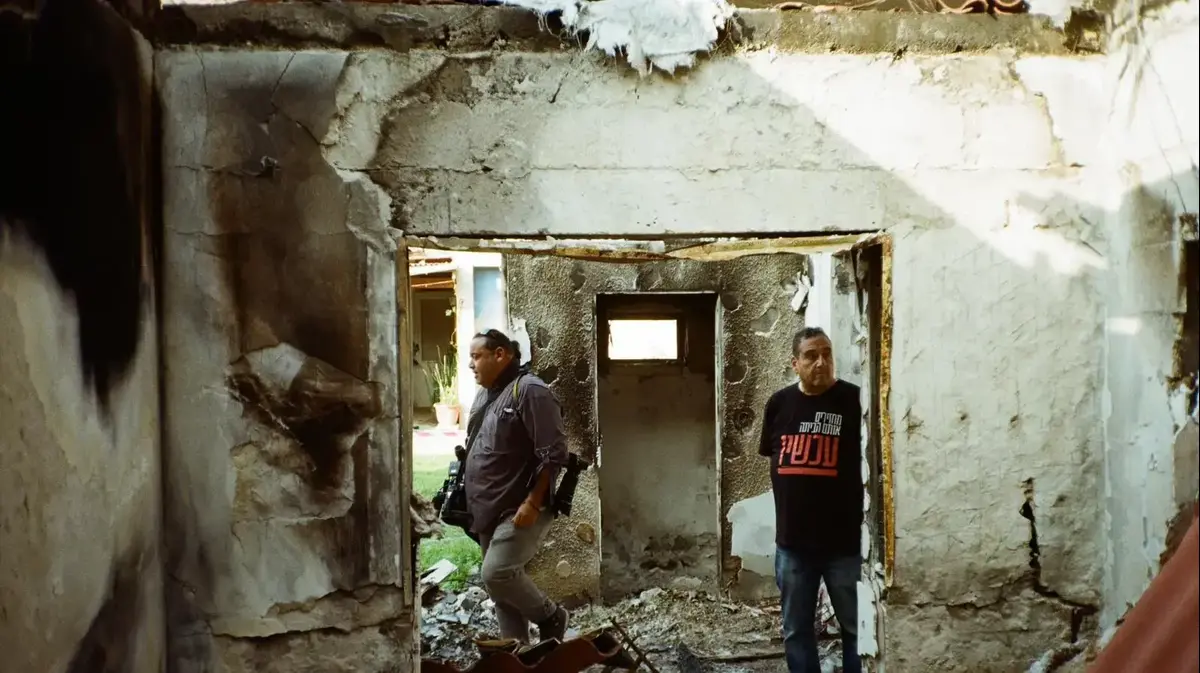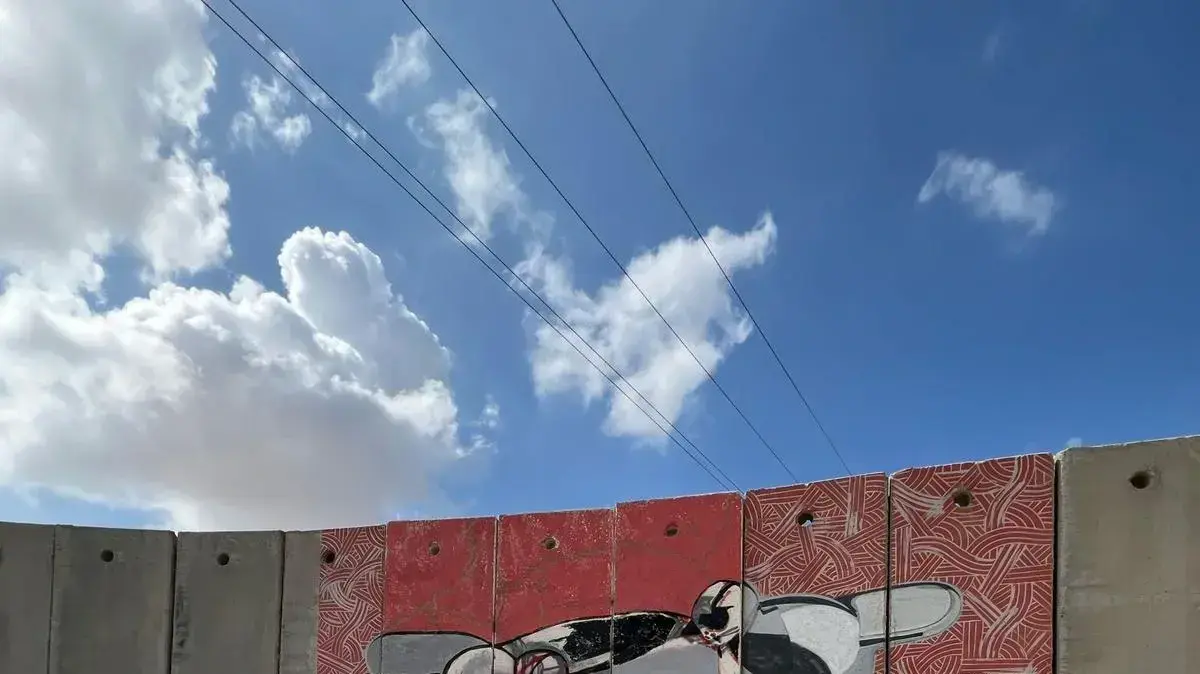Enough for the kibbutz: Is it possible to run a kibbutz as a business and preserve the values?
The need to move forward and the desire for economic well-being are changing the face of the kibbutz.
Even kibbutzim that have not been fully privatized understand that in order to survive they must start running as businesses.
How is this reflected in the field - and what happens when the values at the core of the cooperative society meet the cost of living?
Talia Levin
04/08/2022
Thursday, 04 August 2022, 13:48 Updated: Saturday, 06 August 2022, 08:31
Share on Facebook
Share on WhatsApp
Share on Twitter
Share by email
Share in general
Comments
Comments
In recent years, many kibbutzim in Israel have undergone far-reaching economic changes since the days of the cooperatives, including partial or full privatization processes.
However, today even the kibbutzim that still remain cooperative understand that from a financial point of view the community should be run like a business: growth, efficiency and proper investment of resources almost like any company in the private market.
You may be surprised to hear, but there are few kibbutz paths where today there are no conversations about dividends or exiting the kibbutz business.
Nevertheless, we are a start-up country, and the processes of privatization and the desire to enjoy the accumulated profits from the shared assets as seen in other kibbutzim - whetted the members' appetites.
But the process that many of the kibbutz industries went through, the kibbutz themselves are now also going through: they want a strategy plan and management consultants, they are looking for investments and sources to increase the income of the kibbutz business and for the first time they are looking at the bottom line.
They understand that independent financial ability will help them to take care of the welfare of the members of the economy, develop the infrastructure and buildings of the kibbutz and increase the financial resources of each member of the kibbutz.
Limor Barzilai, VP of Management Consulting at AVIV AMCG (Photo: Yifat Gilboa)
If you need further proof, just look at the job ads and see that today the kibbutzim are appointing a chairman and a CEO - two positions that until now were reserved only for the business sector - and are now also wanted in the kibbutz movement.
"The kibbutz is a business, in the form of a holding company, and it should be treated as such," confirms
Limor Barzilai, VP of Management Consulting at AVIV AMCG,
Israel's largest consulting and management company. "The kibbutz have changed from what we knew 30 years ago, and today they are looking for an investment plan Correct, organizational efficiency, process improvement and thinking like in the private market."
We were always told the opposite, that the kibbutz is a Brazilian social partnership
: "The kibbutz is an organization that includes factories, businesses, service industries and the community, and it has shareholders who are the members of the kibbutz themselves.
This body needs to be managed and led in the operational management of the kibbutz and the community, from the grocery store through the dining room to the animal corner."
"Kibbutzim want to see how they become a profitable business center that gives a community envelope to its members, and not just a community center," says
CPA Nadav Oved, a partner in the company Oved Gobi & Co.
, which specializes in economic and financial consulting and risk management for the settlement sector as well. "There are several kibbutzim that thanks to past investments, some from several decades ago and some in recent years, today are experiencing an incredible boom.
Other kibbutzim have grown significantly following proper conduct and new investments, and there are kibbutzim that are still sitting on the fence.
Their factory falters, and they invest their profits back into the factory or don't invest at all, and therefore don't generate any more streams of income."
CPA Nadav Oved, partner in the company Oved Gobi & Co. (Photo: Courtesy of those photographed, no)
The kibbutz that got rich
One of the kibbutzim that recently made headlines following a successful exit is Afikim in the Jordan Valley.
Epimilk, the kibbutz factory that develops and manufactures computerized systems to increase output in dairy farms and is a resounding success in the world, came under the control of the Fortissimo Foundation in a sale transaction that brought about NIS 140 million into the kibbutz coffers.
"After it was decided to sell another 25% of the shares of the kibbutz-owned Epimilk plant to the Fortissimo fund, the need arose to manage the process of making a decision on what to do with the money from the sale," says Amir Romano, a member of Kibbutz Afikim and who holds the position of chairman of the kibbutz. "On the one hand, we wanted to complete Long-term processes such as associating apartments, earmarking budgets for infrastructure and investing money in the business sector for the benefit of future development, because this is the engine of our growth;
On the other hand, we also wanted to distribute money
to the members of the kibbutz, so that they could also benefit from it."
Romano: "We managed a process of public participation with a lending body for the purpose of building the distribution routes, where first and foremost we had to reflect to the members the financial situation and the options before us. We revealed the data and showed the importance of strong and profitable businesses that will help develop more businesses that will support the community and benefit it through Education, culture, health and sports - everything we define as our core values. After the members were exposed to the data, they expressed their opinion, and one of the most prominent things that came up is the continuation of community activities to nurture the face of the kibbutz, because the subject of environmental art is in our veins. Then, as in every process and decision In the kibbutz, we went to the assembly."
Was it difficult to convince the kibbutz members?
Romano: "Events like this can create a lot of agitation and negative ripples, and this is where the advantage lies in the objectivity of an external body that can present the options in a professional manner together with the two managements of the kibbutz, the business and the social. We clearly explained where the kibbutz is, what our capabilities are, and how we see the future , because the members are not exposed to the information and do not deal with it on a daily basis. They chose a route of distribution according to which each member will receive a base amount of 60 thousand shekels and an additional amount calculated according to the years of seniority, with the remaining amount being used by the kibbutz to pay taxes for the sale and to invest in the kibbutz's infrastructure and visibility. We managed to reach a very broad agreement and the decision was passed by a majority of over 80%."
What difficulties did you encounter during the process?
Romano: "The main challenges were to do work that on the one hand engages the public and gives members their place to express their opinions, and on the other hand preserves the management's ability to continue to uphold the things for which the kibbutz exists. Sometimes it is difficult to make an informed decision looking ahead, and it is more convenient to think about it here And now, but the role of the kibbutz management is to take into account the future, such as pension payments to the old members and decisions made over the years that we believe in and are committed to by virtue of being a kibbutz, such as welfare and health."
Amir Romano, member and chairman of Kibbutz Afikim (Photo: Ron Shelf)
Money versus values
The question of sources of income has accompanied the kibbutzim for a long time because of the high level of risk for a community that relies on a minority of sources of income.
Over the years, the community has expanded and with it its expenses have also increased, and kibbutzim are looking into bringing in partners in the industries and agriculture to inject money.
"Kibbutzim that balance the community's expenses with a significant portion of the profits of industry and the branches of the economy end up harming the kibbutz, because the businesses cover the community's deficit instead of being used as a financial source for growth, explains Oved", but what happens during a crisis, when the businesses cannot cover the expenses?
For example: if there is an industry that experiences a decline or if an event such as the corona virus occurs in kibbutzim that are based on tourism.
The kibbutzim must deal with the question of how to turn the community into an independent economic entity that reduces its reliance on the businesses in the kibbutz and is more financially efficient."
And how do you do that?
Barzilai: "A leap forward is required here in improving the work processes, changing the way of thinking to a business-organizational one and managing all the service units of the kibbutz in an effective manner. If in the past businesses were established just to provide work for the members of the kibbutz, today they understand that they need to set goals."
But not every unit in the kibbutz is economic, there are some that are based on values, such as the animal corner, for example
Barzilai: "Improving the processes is not for raising prices and creating more profit, but to prevent waste, utilize resources and leverage the budget for better places. The animal corner will remain educational If they define it as such, and the grocer should not raise prices and make a profit on the member's back, but maintain a balance, reduce losses and raise the level of service. We see a great deal of money being wasted on depreciation and making incorrect decisions, and this money can be saved and directed to welfare The community. Why don't they take it and set up a club with movies and cultural performances?"
Oved: "In addition to reducing losses, each kibbutz should think about how to develop the businesses so that they continue to serve the community and increase its economic capabilities. For example, it can be decided that the rental of the buildings for small industries and the residences of non-residents will be associated with the community, and thus the community will have a permanent financial source, And they will not rely solely on the businesses in the kibbutz to pass a budget."
"When we lend to kibbutzim, we don't turn them into a private organization whose entire purpose is to get money for the owners," notes Limor Barzilai.
"We just want the community to be managed effectively so as not to lose money. There is no need to stop subsidizing the grocery store, but its opening hours should fit the lifestyle of the kibbutz members in order to save on electricity expenses and employee wages, along with a correct assessment of quantities that will reduce depreciation."
In the kibbutz concept there are other industries that are not supposed to be profitable, such as the laundry or the health system
Employee: "The perception of the economic management is that the community should provide the services of the subsidized dining hall, the dental clinic and the laundry. The resources for this can come from reducing costs and expenses or from increasing sources of profit in existing industries."
like what?
Employee: "Providing services to people from outside, such as selling food from the dining room, laundry services at the laundromat, or dentistry at the dental clinic. Another example is the field of education in the kibbutz, which is not a profitable industry due to the components of its expenses, but there are kibbutzim that have been able to bring children from outside the kibbutz into the kibbutz system, and the income from wages Their studies make education not only financially balanced, but even profitable."
Barzilai: "The idea is to understand which branches are profitable. It is possible to open a nursing home or a home for people with special needs, which are very suitable for the kibbutz social concept, and the tenants will bring money into the kibbutz. This way they will also maintain a high-standard home, because it has stable financial sources,
An employee: "When the community has financial resources and is not in a deficit, it is possible to improve its conditions. This way, the members end up with well-maintained infrastructure and public buildings, better quality education and a more professional clinic. When the compensation level is high, you can bring in the best."
There are cooperative kibbutzim that will have a very difficult time opening the kibbutz services to outsiders, especially the
Barzilai education system: "I understand the members of the kibbutz and it is possible to find solutions to improve effectiveness that will generate money and finance the community within the boundaries of the sector that is important to it. We learn what the holy of holies of each kibbutz is And they don't touch it, but they can give ideas and solutions and open their minds to thinking about improvement and efficiency, while providing assurance that it does not harm the quality of life of the members or the collective values. The processes do not only consider the money, but also suit the kibbutz without harming its culture."
And what happens when the kibbutz of yesterday meets the kibbutz of tomorrow?
Employee: "In many cases, those who manage the community are not financiers, and therefore, in order to optimize the system and make it balanced, a designated financier must be attached to the officials in the various fields, such as the director of education or those responsible for the dining room and the laundry. Together They will work on building forecasts and a multi-year budget for the industry: checking future revenues and expenses each year, number of employees required and more."
Barzilai: "The members understand that it is impossible to go against the surrounding trends, and precisely for the kibbutz to be able to face the challenges and preserve the kibbutzim and the values - the work of organizational consulting and change management is needed alongside the financial consulting. In general, the key to success in investment moves and improving effectiveness and processes in the kibbutz is in change organizational and accompanying the change in the aspect of human capital. This is the only way to define the culture that is important to them to maintain, to understand where they would like to take the kibbutz and to do so within the framework of a real, participatory and transparent discourse. You have to be very sensitive, especially with the veterans of the kibbutz in order to listen to them and explain the need for change ".
Worker: "Savings in the community can lead to improving the cash flow capabilities of the kibbutz. It is true that you need to make sure that all past obligations have been fulfilled or will be fulfilled, but at the same time you also need to think about the future. In the end, the kibbutzim will make the decisions that are right for them, but in order for this to happen - every kibbutz We need to take care of his financial strength."
Of money
Tags
avenues
kibbutz
privatization

